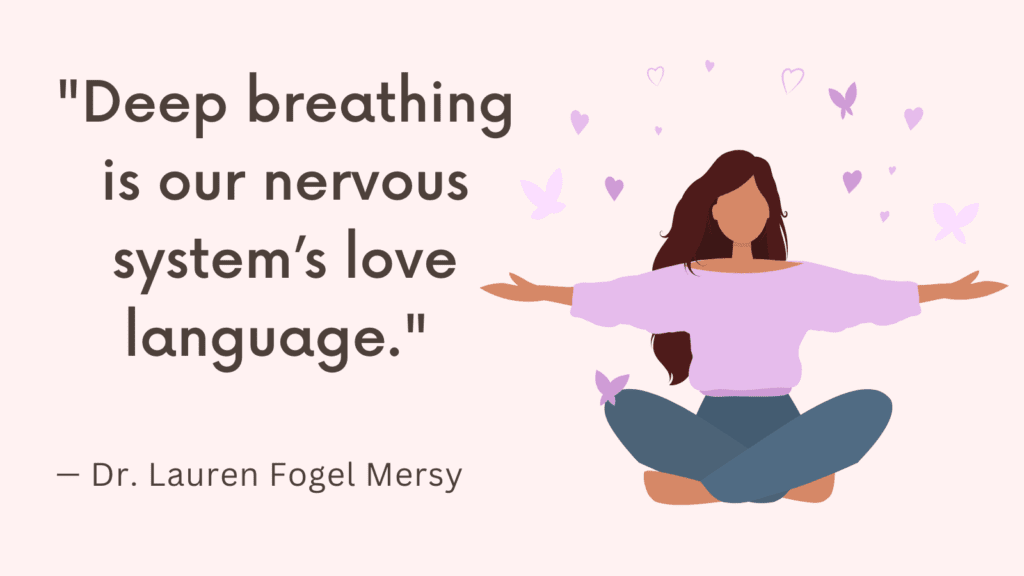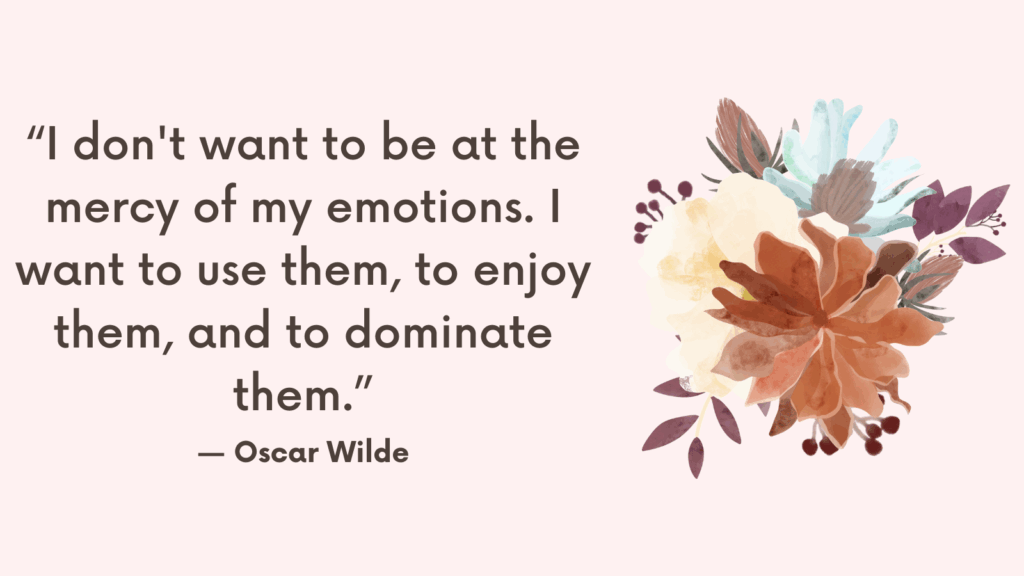In this post, you’ll learn all about future tripping – what it is and how to avoid it.
What Is Future Tripping?
Future tripping refers to the act of getting lost in future worries, anxieties, uncertainty, and fears.
It is a tendency to overthink and obsess about what may happen in the future instead of staying present and focusing on the present moment.
Future tripping can lead to increased stress, anxiety, and negative thoughts about the future, which can ultimately impact mental and emotional well-being.
Related: What Causes Cognitive Distortions? (+Top 10 Common Cognitive Distortions & How To Challenge Them)
Signs You’re Engaging In Future Tripping
Here are some signs that you may be engaging in future tripping:
1. You constantly worry about what might happen in the future, even if it’s unlikely to happen.
2. You find it difficult to stay present in the moment and enjoy what’s happening now.
3. You obsess over plans or events that are weeks, months, or even years away.
4. You frequently have “what-if” conversations with yourself, imagining scenarios that haven’t happened yet.
5. You often make assumptions about how a situation will turn out without having all the facts.
6. You become fixated on problems that might arise in the future, even if they’re minor or unlikely to occur.
7. Your thoughts about the future make you feel anxious, nervous, or overwhelmed.
8. You avoid taking action because you’re worried about what could go wrong in the future.
9. You find it hard to sleep or relax because your mind is constantly racing with thoughts about the future.
Related: How To Stop Self-Critical Thoughts Using These Top 10 Techniques
Planning vs. Future Tripping
Planning involves creating a clear and organized strategy for achieving a set of goals or objectives, taking into consideration the resources, timelines, and potential obstacles.
It is a proactive and constructive process that helps individuals or organizations to make progress towards their desired outcomes.
On the other hand, future tripping refers to worrying excessively about the future and imagining worst-case scenarios without taking any concrete action to address those concerns.
It is a negative and unproductive habit that can create unnecessary stress and anxiety, and prevent individuals from enjoying the present moment.
In other words, planning is about setting achievable goals and creating a roadmap for success, while future tripping is about being anxious and fearful about the future without taking any meaningful steps to prepare for it.
Related: Best 10 Intrusive Thoughts Books
How to Avoid Future Tripping?
#1. Understand Your Triggers
Understanding what triggers you to start future tripping can help you identify when you are about to fall into this pattern of thinking.
Here are some common triggers for future tripping:
1. Anxiety: People who struggle with anxiety often worry excessively about what might happen in the future. This can lead to a cycle of negative thinking and catastrophic predictions.
2. Perfectionism: For perfectionists, the fear of making mistakes can be overwhelming. They may worry excessively about future failures or being unable to live up to their own high standards.
3. Control issues: Some people have a strong need to be in control of everything in their lives. When things don’t go as planned, they may worry excessively about the future and feel a sense of helplessness.
4. Trauma: People who have experienced traumatic events may have difficulty feeling safe in the present and may constantly worry about what could happen in the future.
5. Lack of confidence: If someone lacks confidence in themselves or their abilities, they may worry about their future success or whether they will be able to handle challenges that lie ahead.
6. Negative self-talk: Negative self-talk can create a self-fulfilling prophecy where a person becomes convinced that the worst will happen in the future. This can lead to excessive worrying and anxiety about the unknown.
Related: Best 6 Ways to Let Go of Wanting to Control Everything
#2. Focus on the Present Moment
One effective way to avoid future tripping is by taking a moment to focus on the present moment.
This means being fully present and engaged in whatever activity you are currently doing, whether that be work, spending time with loved ones, or simply enjoying a hobby.
By focusing on the present moment, you can become more grounded and centered, which can help prevent your mind from drifting off into anxious thoughts about what could happen in the future.
You might find it helpful to practice mindfulness techniques, such as deep breathing or body scan meditations, to cultivate a greater sense of presence and awareness in the here and now.
Whenever you notice yourself starting to worry about the future, try to gently bring your attention back to the present moment and remind yourself that right now, everything is okay.
Related: Best 6 Mindfulness Exercises For Beginners (+FREE Resources)
#3. Practice Mindfulness
Mindfulness is a powerful tool that can help you stay present in the moment, focus on the here and now, and avoid getting caught up in future worries and anxieties.
There are many mindfulness practices you can try, such as meditation, yoga, breathing exercises, or simply becoming more aware of your thoughts and emotions in the present moment.
The following is a mindfulness practice you may find helpful:
1. Find a quiet and comfortable space to sit or lie down.
2. Close your eyes or soften your gaze and take a few deep breaths to relax your body.
3. Begin to focus on your breath, noticing the sensation of the air moving in and out of your body.
4. When your mind starts to wander, gently bring your attention back to your breath. You can also try to observe your thoughts and emotions without getting caught up in them.
5. Practice for at least five minutes a day and gradually increase the time as you feel comfortable.
Remember that mindfulness is a skill that takes practice and patience.
Related: Best 8 Mindfulness Exercises For Adults That Will Help You Regulate Your Emotions

#4. Engage In Activities That Bring You Joy
Engaging in activities that bring you joy can help you stay present and focused on the task at hand.
Whether it’s spending time with loved ones, practicing a hobby, or exercising, find something that brings you happiness and make time for it.
Related: Best 10 Mindfulness Coloring Books
#5. Set Realistic Goals
To avoid future tripping, it’s important to set realistic goals that are achievable.
The first step is to identify and acknowledge your limitations. Understand what you can and cannot do with your current resources, skills, and abilities.
This will help you avoid setting unrealistic expectations for yourself.
Next, focus on the present moment and take small steps towards achieving your goals.
Break down larger goals into smaller, more manageable ones, and celebrate each accomplishment along the way.
This will not only help you feel more accomplished, but it can also boost your confidence and motivation.
It’s also important to be patient and gentle with yourself. Avoid putting too much pressure on yourself to achieve your goals overnight. Remember that everyone has their own timeline and pace for progress.
Finally, don’t forget to enjoy the journey. Focus on the positive experiences and lessons you gain from working towards your goals, rather than solely focusing on the end result.
Related: Are You a Procrastinator Quiz? (+ Best 40 Tips To Stop Putting Things Off)
#6. Be Prepared
If there’s a specific event or situation that you’re worried about, take steps to prepare for it in advance.
This can help you feel more confident and less anxious.
#7. Write Down Your Worries
Writing down your worries and concerns can help you get them out of your head and onto paper.
Once you’ve written them down, try to let them go and focus on the present moment.
Related: Best 10 Intrusive Thoughts Books
#8. Develop a Gratitude Practice
Focusing on what you are grateful for in the present moment can help you shift your attention away from future worries and anxieties.
Make a habit of listing three things you are grateful for each day, or write down your blessings in a gratitude journal.
#9. Talk to Someone
Talking to a friend or therapist about your worries can help you gain perspective and feel less overwhelmed.
If you find that your future tripping is interfering with your life or causing significant distress, it may be time to seek professional help.
A therapist or counselor can help you identify the underlying causes of your anxiety or worry and develop strategies for managing them.
Related: High Functioning Anxiety Test (& How To Support Anxiety Recovery)

Conclusion
Future tripping is a common habit where you spend an excessive amount of time worrying about the future or even fantasizing about what could happen.
Remind yourself that the future is uncertain and worrying about it won’t change anything.
By focusing on the present moment and taking steps to prepare for the future, you can reduce anxiety and enjoy life more fully.
Over time, with practice and patience, you can learn to break free from the cycle of future tripping and live more fully in the present moment.



